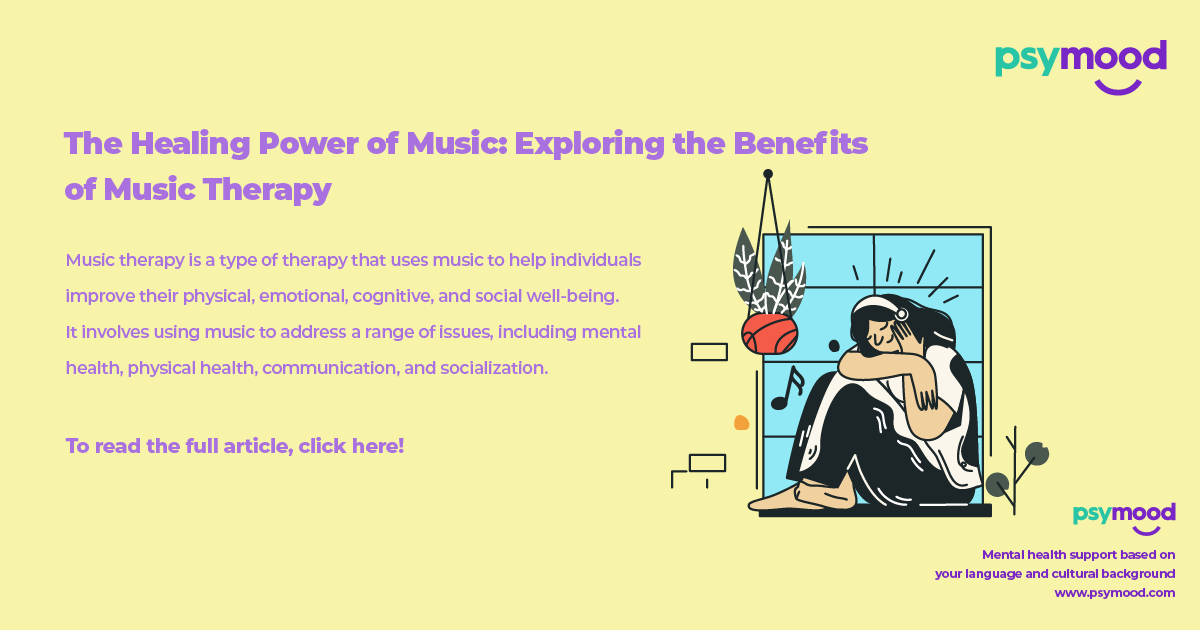The Healing Power of Music: Exploring the Benefits of Music Therapy
A Closer Look at Music Therapy
Let’s take a closer look at what music therapy is during March’s Music Therapy Awareness Month. Music therapy is a type of therapy that uses music to help individuals improve their physical, emotional, cognitive, and social well-being. It involves using music to address a range of issues, including mental health, physical health, communication, and socialization.
Music therapy can be delivered in a variety of settings, such as hospitals, schools, nursing homes, and community centers, and can be used with individuals of all ages and abilities. A music therapist is a trained professional who uses music interventions to work towards specific goals tailored to each individual’s needs and abilities.
The specific techniques used in music therapy vary, but they can include listening to music, singing, playing instruments, songwriting, and improvisation. The music therapist may also use various techniques to help individuals engage with music, such as guided relaxation, movement to music, and music-assisted visualization.
Benefits of Music Therapy
Music therapy has been shown to have many benefits, including reducing stress and anxiety, improving mood and emotional regulation, enhancing communication and social skills, and even improving physical health outcomes such as pain management and motor function. Keep reading to learn about some of the potential benefits of music therapy for mental health:
- Reducing Symptoms of Depression and Anxiety: Listening to and creating music can help regulate mood and reduce symptoms of depression and anxiety. Listening to music can activate the release of endorphins, the body’s natural « feel-good » chemicals, which can help regulate mood and reduce symptoms of depression and anxiety. Additionally, music therapy can also help individuals learn to identify and express their emotions, providing a safe and structured outlet for feelings that might be difficult to express in other ways.
- Improving Emotional Regulation: Music therapy can help individuals learn to recognize and regulate their emotions by providing a safe and expressive outlet for their feelings. Music can stimulate the brain’s limbic system, which is responsible for regulating emotions, and can help individuals learn to recognize and regulate their emotional responses to different stimuli.
- Enhancing Self-Esteem: Music therapy can improve self-esteem by providing opportunities for success and mastery in a creative and supportive and non-judgmental environment. Furthermore, music therapy can develop and nurture the individual’s self-confidence and self-worth.
- Increasing Socialization: Group music therapy sessions can provide opportunities for social interaction and connection with others. This can further improve an individual’s confidence and self-worth by giving them a sense of community and belonging.
- Providing a Sense of Control: Music therapy can provide a sense of control and empowerment for individuals with mental health conditions by allowing them to express themselves in a safe and structured way.
- Improving Cognitive Functioning: Music therapy can help improve cognitive functioning, including memory, attention, and executive function. Playing or listening to music can stimulate multiple areas of the brain, including those responsible for memory, attention, and executive function. This stimulation can help improve cognitive abilities such as working memory, processing speed, and task switching. Music therapy can also help improve language and communication skills, as musical activities such as singing and songwriting require the use of language and can help individuals develop their vocabulary, syntax, and other language skills.
Importance of Music Around the World
Music is a universal language that holds great cultural significance and is valued in different ways across different cultures around the world. In some cultures, music therapy is rooted in traditional healing practices and is used to treat physical and spiritual ailments. All in all, music therapy can be a form of treatment that is used around the world to address a wide range of physical, emotional, and mental health needs.
For example, in traditional Chinese medicine, music is used to balance the body’s energy and promote healing. In African cultures, music is used to facilitate communication and to promote social cohesion within communities. In Western cultures, music therapy is used in clinical settings to address a wide range of mental health conditions, including depression, anxiety, and post-traumatic stress disorder.
Music therapy can involve a variety of techniques, including listening to music, playing instruments, singing, and improvisation, and can be tailored to meet the specific needs and goals of each individual. Overall, music therapy is a versatile and powerful form of treatment that is used in diverse cultural contexts around the world.
Final Thoughts
Here at PsyMood, we work with many different forms of therapists including music therapists. Click here to learn more about our specialists and what they offer, and make sure to check out our webinar PsyMood Session #10: Strengthen Your Mental Fitness that highlights Tiffany Sparrow, Music Therapist to learn more about music therapy and its benefits.
PsyMood is a digital tool designed to help you find the support you need in the language that you are most comfortable with. PsyMood considers cultural background, geographical location, interests, and personal needs, amongst other factors, to pair you with service providers for either online or in-person therapy sessions.


.png)
.png)
.png)
Recent Comments